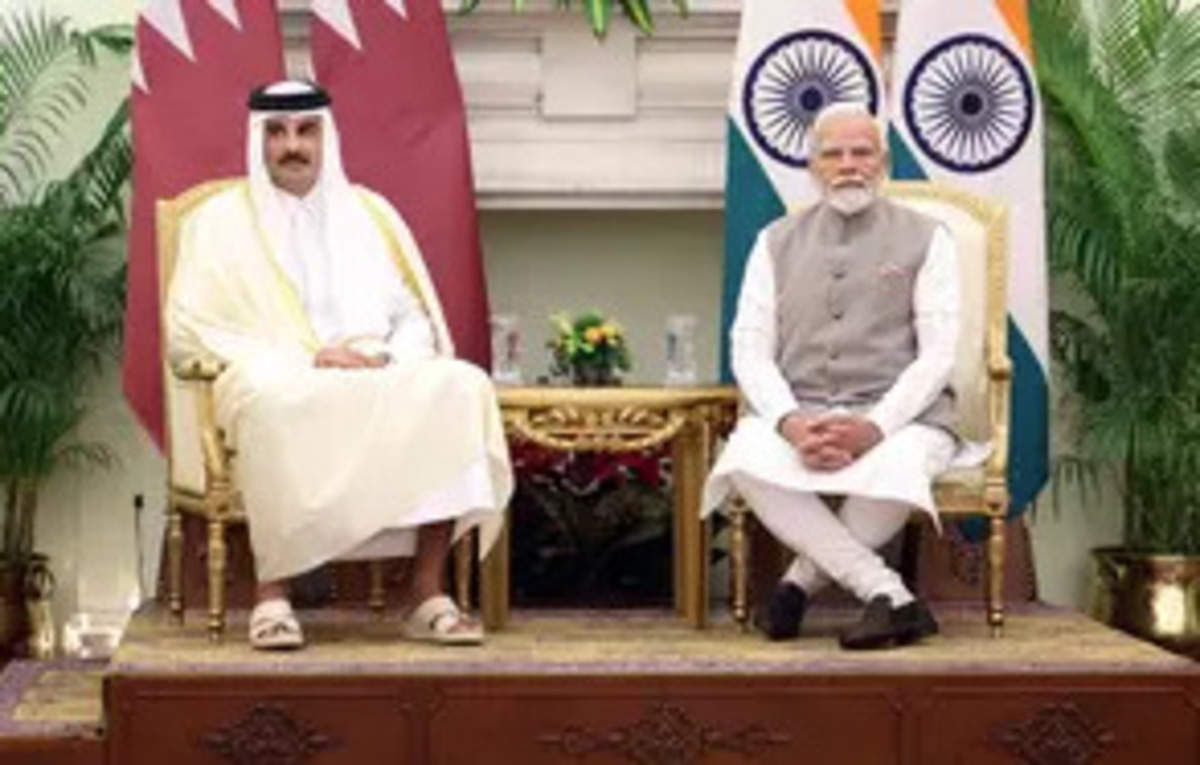Blinken says some Hamas changes to Gaza ceasefire proposal ‘not workable’

US Secretary of State Antony Blinken has said that some of the amendments proposed by Hamas to the United States’ proposal for a truce in Gaza are not “workable”, but efforts to reach an agreement are continuing.
Speaking from Doha alongside Qatar’s Prime Minister Sheikh Mohammed bin Abdulrahman bin Jassim Al Thani on Wednesday, Blinken said Israel’s war on Gaza will continue “as a result” of Hamas’s response.
“Hamas has proposed numerous changes to the proposal that was on the table. We discussed those changes last night with Egyptian colleagues, and today with the prime minister,” Blinken said. “Some of the changes are workable. Some are not.”
Washington had presented the plan late last month, saying that it would lead to an “enduring” ceasefire in Gaza.
Hamas submitted its response jointly with the Palestinian Islamic Jihad on Tuesday, describing it as “responsible” and “positive”.
“The response puts the priority to the interest of our Palestinian people, the necessity to completely stop the ongoing aggression on Gaza, and the withdrawal [of Israeli forces] from the entire Gaza Strip,” the group said in a statement.
When US President Joe Biden announced the multi-phased proposal on May 31, he said it would include the withdrawal of Israeli forces from Gaza and a permanent cessation of hostilities.
The discrepancy between Hamas’s position and the US proposal is unclear. On Tuesday, Blinken squarely blamed the Palestinian group for the failure to reach an agreement.
“A deal was on the table that was virtually identical to a proposal that Hamas put forward on May 6 – a deal that the entire world is behind, a deal Israel has accepted. And Hamas could have answered with a single word: Yes,” Blinken said.
“Instead, Hamas waited nearly two weeks and then proposed more changes, a number of which go beyond positions that it had previously taken and accepted.”
Hamas responds to Blinken
Hamas official Taher Al-Nunu accused Blinken of bias, saying that the top US diplomat has been acting like he is Israel’s foreign minister since the start of the war.
“He lacks neutrality. He lacks even-handedness. He operates with double standards. He is trying to portray the [Palestinian] resistance as if it is the party obstructing the deal,” Al-Nunu told Al Jazeera Mubasher later on Wednesday.
He said Hamas accepted the proposal presented by Qatar and Egypt on May 6 as it is, and it was Israel that added amendments to it. Hamas’s response on Tuesday was counter-revisions to some of the Israeli changes, Al-Nunu said.
According to Al-Nunu, Hamas’s notes aimed to ensure that Israel would not renege on the deal and resume the war after the first phase, which would see the release of some of its captives in Gaza.
Asked whether Hamas would be flexible about demands labelled “not workable” by Blinken, Al-Nunu said it is “normal” for negotiating parties to accept or reject amendments to a proposal.
In his news conference with Blinken, Qatar’s Sheikh Mohammed said talks to bridge the gap between the parties will continue.
“These are not new efforts or dynamics for negotiations. There is always space and ‘give and take’. After all, these are negotiations to reach an agreement. There is no absolute response – yes or no,” he said.
‘Durable’ peace
The Qatari prime minister called for a “sustainable solution” to the Israeli-Palestinian conflict that would see the establishment of a Palestinian state based on the 1967 borders with East Jerusalem as its capital.
Blinken also stressed the need for “durable” peace and building a “more integrated, more stable and more prosperous” Middle East.
“Over the course of what’s now my eighth visit to the region since October 7, everyone that I’ve engaged with has made clear that this is the path they want to pursue,” the top US diplomat said.
“Now, I can’t speak for Hamas or answer for Hamas. And ultimately, it may not be the path that Hamas wants to pursue, but Hamas cannot and will not be allowed to decide the future for this region and its people.”
The Biden administration and Arab countries have been calling for a two-state solution to the conflict, but Israeli Prime Minister Benjamin Netanyahu has categorically rejected the establishment of a Palestinian state.
“I will not compromise on full Israeli security control over the entire area in the west of Jordan – and this is contrary to a Palestinian state,” Netanyahu said in a social media post in January.
Washington, which previously vetoed three United Nations Security Council resolutions that would have demanded a ceasefire in Gaza, provides $3.8bn in military aid to Israel annually.
Earlier this year, Biden signed off on $14bn in additional assistance to Israel as it pursues what it calls “total victory” against Hamas.
Meanwhile, the Biden administration has been pressing the Netanyahu government to present a plan for post-war Gaza.
On Wednesday, Blinken said the US will soon present its own vision for Gaza after the conflict.
“In the coming weeks, we will put forward proposals for key elements of the day-after plan, including concrete ideas for how to manage governance, security, [and] reconstruction,” he said. “That plan is key to turning a ceasefire into an enduring end to the conflict.”
Related
Ashghal commences roads, infrastructure development in Birkat Al Awamer
Doha, Qatar: The Public Works Authority 'Ashghal' started the implementation of the Roads and Infrastructure Development Project in Birkat Al Awamer. T
India-Qatar trade agreement must be approached with caution: GTRI –…
India should tread cautiously on a potential free trade agreement (FTA
Qatar’s Ashgal likely to award industrial areas infra consultancy contract…
Qatar’s Public Works Authority (Ashghal) is expected to award the design and lead consultancy contract for the North of New Industrial Area Roads and Inf
Qatar’s $2.5bn green bonds fund enhances renewable energy and infrastructure
Doha, Qatar: Qatar continues to boost its investments in sustainable development, demonstrating its competitiveness on the global stage. An official no












